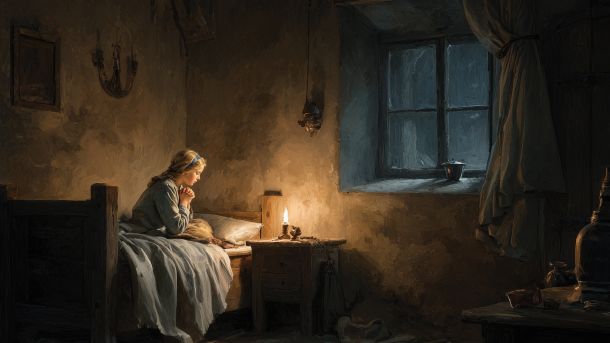A Life of Service
HOME
Erzurum, 1938–1959
Fethullah Gülen Hocaefendi was born in 1938 in Erzurum, Turkey, to a pious family. Under the oppressive conditions in the country against the pious, Fethullah was primarily taught by his parents and Muhammed Lutfi (aka Alvarlı Efe), a spiritual master and poet who instilled in his heart a unique love for Prophet Muhammad, peace be upon him, and his Companions.
SOWING THE SEEDS
Edirne, Kırklareli 1959–1966
After completing his studies under some of the leading scholars of the time, he began preaching at a young age. His sincere faith, enthusiasm, and oratory skills during his tenure at some of the major mosques in Edirne gave rise to a considerable number of people inspired by him. In Edirne, Gülen was assigned to preach at Üç Şerefeli Mosque, one of the oldest monuments of the city. During his service there, he withdrew himself to the mosque, choosing an ascetic lifestyle. He lived in one of the window nooks of the mosque for about two-and-a-half years, with no heat or electricity.
LAYING THE FOUNDATIONS
Izmir, 1966–1980
In 1966, he was assigned as the director of a Qur'anic school in Izmir, the third largest city of Turkey. He organized the first summer camps, aiming to provide the youth with a learning environment immersed in the heart of nature, filled with prayers and contemplation. Following the military memorandum of March 1971, he was arrested during a crackdown against hundreds of others, simply for reading a particular Qur'anic commentary: The Risale-i Nur by Bediüzzaman Said Nursi. He was released after six months and returned to service as itinerant preacher in the Aegean provinces of Turkey. In his sermons, he addressed scientific topics and the social issues of the time. His convincing arguments drew many college students and academics to his speeches, and over time, a large following emerged. During this time, he successfully brought together philanthropists to open houses and dormitories for students who could not afford accommodation. These facilities were designed to provide a safe haven at a time when the country was engulfed in anarchy and college campuses resembled battlegrounds.
FLOURISHING
Istanbul, 1980–1999
When Turkey was interrupted by another military coup in September 1980, Gülen retreated into solitude for nearly six years. It was time of melancholy and loneliness for him. While avoiding the military junta until 1986, when charges against him were dropped, he continued to build the community. He focused on teaching his students and urged philanthropists to build schools in every town where they could afford it. After the collapse of the Soviet Union, he called on his community to build bridges with the emerging nations of Central Asia by establishing educational and economic ties. This outreach expanded to the Balkans, Africa, and other regions of the world throughout the 1990s.
In 1994, Gülen started the Journalists and Writers Foundation and launched an unprecedented "dialogue" initiative to unite intellectuals and community leaders in seeking common ground and solutions to pressing and polarizing social issues. As a part of this outreach, he met with prominent figures from various faith traditions, including Greek Patriarch Bartholomew I, Eliyahu Bakshi-Doron, Chief Sephardic Rabbi of Israel, and Pope John Paul II.
HIZMET GLOBAL
America, 1999 –
In the late 1990s, Turkey entered what is often referred to as a "postmodern coup." Unlike the coups that took place before, the Turkish military did not take over the government directly but instead implemented policies aimed at curbing religious expression in society. On February 28, 1997, the military issued a memorandum that led to the Prime Minister's resignation and the collapse of the government. This period saw heightened restrictions on wearing headscarves in schools and government offices, a lowering of the GPA factor for religious school graduates in college admissions, increased pressure on businesses associated with religious groups, and threats of “treason” charges against prominent figures. Among those targeted was Fethullah Gülen, who was forced to leave Turkey. In March 1999, he moved to Pennsylvania, USA. Although he was acquitted of all charges in 2008, Gülen chose not to return to his beloved country—a decision that later events would affirm as prudent.
From his base in Pennsylvania, Gülen continued to guide the Hizmet movement through his sermons and writings, fostering dialogue and understanding worldwide. His efforts earned him numerous accolades, including being named among "The World's Top 20 Public Intellectuals" by Foreign Policy and Prospect magazines in 2008, receiving the EastWest Institute's 2011 Peace Building Award, the Manhae Grand Prize in the peace category in 2013, and being listed in Time magazine's 100 most influential people in the world leaders list in 2013. He was also honored with the Gandhi King Ikeda Peace Award in 2015.
By the time of his passing on October 20, 2024, Gülen’s message of education, dialogue, and service had reached 170 countries through schools and relief initiatives, inspiring countless individuals across nations and faith traditions.









